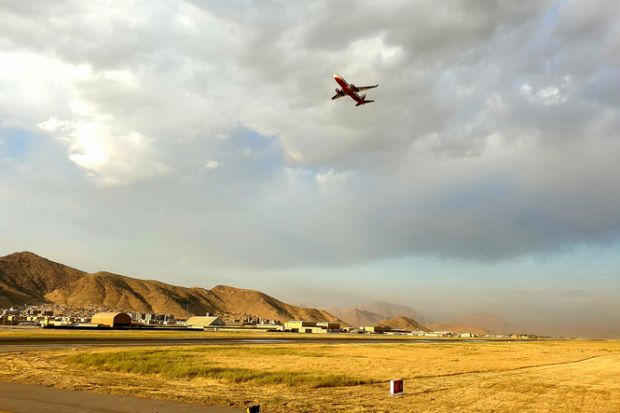The UK government has opened applications to resettle Afghan alumni of its prestigious Chevening scholarship programme, potentially signalling the light at the end of the tunnel for the couple dozen scholars still stranded in the Taliban-controlled country.
One alumnus, who asked not to be named because of ongoing safety concerns, told Times Higher Education that the announcement came as a great relief to Afghan Chevening alumni, who have been “desperately awaiting” the scheme’s launch.
“We have been going through stress, anxiety and disappointment. This is such relieving news at a time when most of us were down, broken and frustrated,” he said, adding that he was grateful to “those in higher education and beyond who have spoken for us”.
The UK government’s announcement on 13 June is a long hoped-for turn in a bumpy road for the alumni, who have been petitioning Westminster to evacuate them even as conditions in the country have worsened.
In recent months, Afghanistan’s fundamentalist regime has forced out female faculty members and segregated students by gender, establishing physical barriers between men and women and changing schedules to divide them into separate classes – and academics have expressed concern that the Taliban could shutter universities as it seeks to reform higher education in the country in its own extremist image.
There have also been reports of scholars with US and UK links being targeted by the Taliban. Ceri Oeppen, co-director of the Sussex Centre for Migration Research at the University of Sussex, previously estimated that while roughly 40 to 50 Chevening alumni remained in Afghanistan, “their strong ties to the UK turned from an asset to a serious vulnerability”.
The Afghanistan Chevening Alumni Network has complained that its alumni had initially been promised resettlement in August 2021, but were then excluded from the UK government’s resettlement scheme for vulnerable Afghans that September, before being “re-included” in December after their campaign.
Even so, the timeline for their relocation has remained unclear. In February, the alumni group said they were still waiting to be contacted by the UK government. “Why [this] silence?” they asked.
The series of events echoes what happened to Afghan participants in the US government’s Fulbright scholarship programme. In March, the US reinstated the scheme, which had been suspended months earlier by the State Department over safety concerns.
Other vulnerable Afghan academics and students are still stuck in the country. A member of the alumni association of the American University of Afghanistan – a US-funded institution whose staff and students have been targeted by the Taliban – said it continues to push for US visas for its members.
“We welcome any kind of support from any authorities to take us to safety,” said the former AUAF student, who wished to remain anonymous for safety reasons because he is still in Afghanistan.
While the Chevening alumnus said he was thankful to the UK government for its most recent move, he cautioned that the “announcements must be followed by action to have meaning” and he urged Westminster to be clear about its schedule for resettlement.
“Keeping lines of communication open is vital to us all, and an understanding of timescales and next steps will help those of us in peril to have courage and confidence,” he said.
Register to continue
Why register?
- Registration is free and only takes a moment
- Once registered, you can read 3 articles a month
- Sign up for our newsletter
Subscribe
Or subscribe for unlimited access to:
- Unlimited access to news, views, insights & reviews
- Digital editions
- Digital access to THE’s university and college rankings analysis
Already registered or a current subscriber? Login








